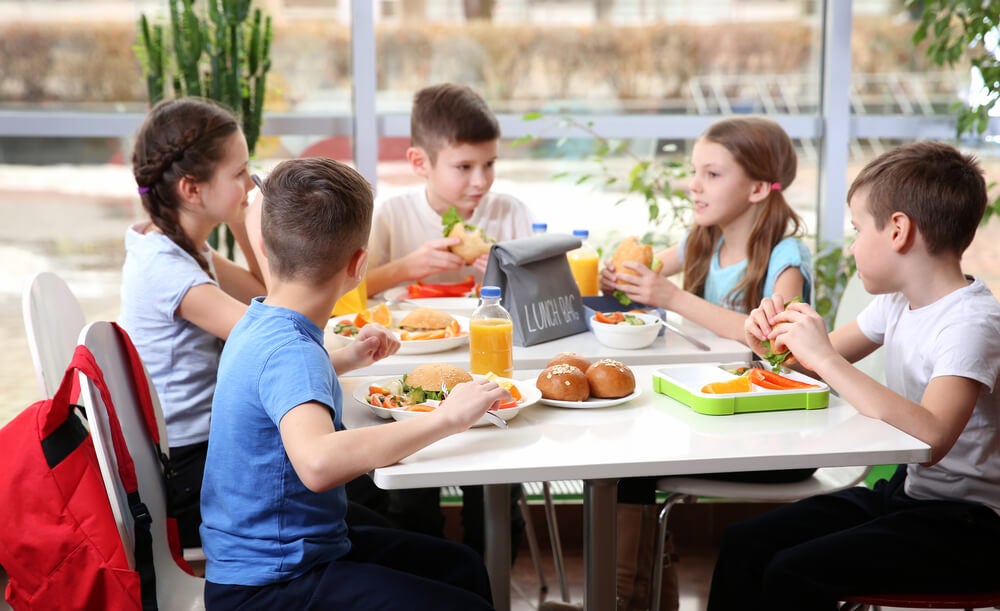Letting our children eat at school is a possible solution to address problematic attitudes about food. In addition, if possible, there are many other benefits of food in the school cafeteria and to preserve our relationship with our children.
Children’s eating habits remain a concern for parents around the world, it is critical that children eat well, but it is also very common for the time of eating to become a battleground, leading to anxiety and feelings of rejection of food. and can also affect other aspects of the relationship between parents and children.
- School feeding is a service offered by some schools that is part of its operation.
- Because they also understand that there are stages.
- Such as children.
- Where nutrition and nutrition are of vital importance.
- In this article we will discuss the benefits offered by this possibility.
- Us.
- Both personally and familiarly.
- ‘.
“An empty stomach is a bad counselor. “-Albert Einstein-
School meals are an additional form of health education by promoting the development of hygiene habits and promoting good nutrition.
Other benefits that can be highlighted are that children learn to use cutlery and towels correctly, as well as to adopt a proper body posture to eat, in addition, they will learn to respect their colleagues and all employees of the cafeteria.
Eating in the school cafeteria helps children develop cooperation and camaraderie skills, as the volume of voice must be moderate for everyone to listen.
In these spaces social skills are also developed, our children will spend time with colleagues outside the classroom, in a more relaxed and pleasant environment, they will be able to sit with new friends and build relationships with different people, as well as strengthen ties. with those you already know.
In addition, letting the child eat a single meal at school helps us balance our work and the free hours we spend with our children, in this way, thanks to the new habits they acquire when eating at school, we will be able to pass more quality. time with them, without the scenes and fights at lunchtime flying at this hour. In fact, it is very likely that once a child has acquired certain habits in school, he or she will generalize them to the family environment, as long as the same rules are maintained.
Next, we’ll look at some cases where it’s recommended to take our children in advance, or pick them up later, so they can eat at school.
Imitation is a critical component of learning in children, so it’s very likely that when they see their friends eat, other children will be encouraged to do the same. When a child is with his parents, he attracts all the attention in the world. If you don’t try or eat a certain food, and this ends up reinforcing this behavior, now in the school cafeteria you probably won’t get as much attention and won’t feel so pressured, this will lead them to create a food behavior themselves.
The school cafeteria is a space to share moments and relationships with others, in general everyone sits with everyone at shared tables, plus lunchtime is a quiet and relaxed time, ideal for engaging in relationships and having a good time with other people.
One of the most common reasons to get the child to eat at school is usually the lack of time available to the responsible adult to cook, in fact, we often use industrial food frozen by such situations, however, it is generally not. This type of food is served in the school cafeteria, but healthy and balanced food will be a better choice.
“No one gets bored at the table during the first hour of the meal” – Anthelme Brillant-Savaron-
Allergic children are often treated specially, the cafeteria treats children’s needs with care and does not allow their allergies to be grounds for separation or discrimination by their co-workers, so the child will have the opportunity to eat with others, and not feel strange, in addition to accepting their allergy naturally.
The school cafeteria has a routine and a certain step by step that is repeated every day and that all children know and must follow. On the other hand, the schedules establish a limited time that favors the development of the child’s concentration at lunchtime and, above all, teaches him not to stay indefinitely at the table to eat.
We often want our children to eat everything and healthily, but we don’t like or eat vegetables, legumes and other foods that are part of a really healthy and balanced diet.
Although it is ideal to eat well during all meals and even on weekends, we hardly ever do, and the reality is that our bad examples have a great influence on our children’s diet.
“Sometimes the only way to stay healthy is to eat something you don’t want, drink something you don’t like, and do something you’d rather not do. “- Mark Twain-
Healthy habits such as trying and eating all kinds of foods, as well as having a routine, in addition to the social skills that children can learn in the school cafeteria, can be very useful if we enjoy them in the time we spend as a family.
As we can see, using the school cafeteria can offer great benefits for us and our children. Let’s take advantage of these opportunities and then bring them home too and help improve family meals, a beautiful time!

